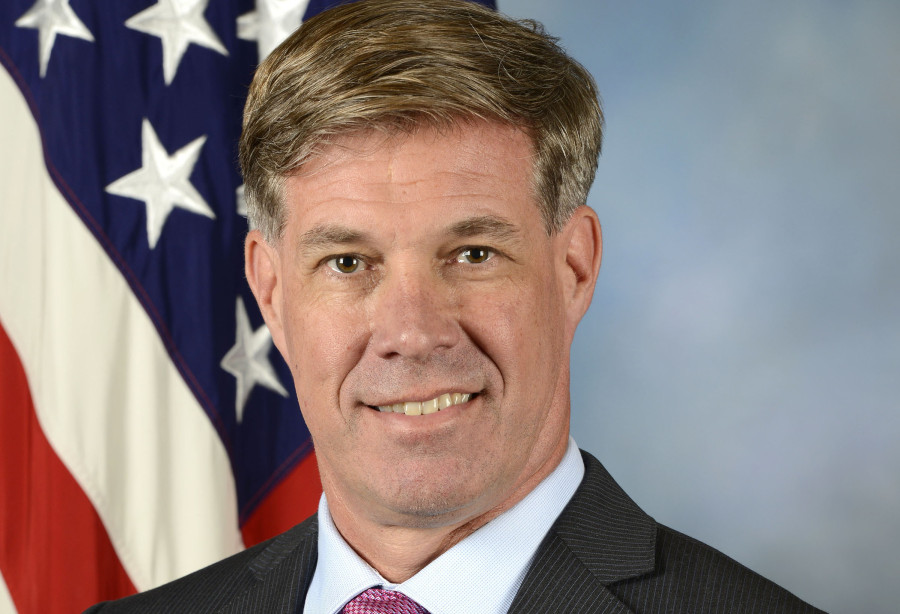National
Chinese investment should serve the interest of Nepal and not just China, US official says
Amid Nepal’s growing engagements with China, including plans to build at least nine projects under the Chinese Belt and Road Initiative, a senior US defense official on Monday dropped a caveat: Chinese investment should be designed to serve the interest of Nepal and not just China.
Anil Giri
Amid Nepal’s growing engagements with China, including plans to build at least nine projects under the Chinese Belt and Road Initiative, a senior US defense official on Monday dropped a caveat: Chinese investment should be designed to serve the interest of Nepal and not just China.
Speaking to a group of journalists in Kathmandu, the visiting US Deputy Assistant Secretary of Defense for South and Southeast Asia, Joe Felter, said that some activities that China has been engaged in the past across the region—in Sri Lanka, the Maldives and Malaysia—are a cause of concern.
“We welcome a constructive relation with China, we welcome the investment by China, but as long as that investment is designed to serve the interest of Nepal and not just China,” he said.
Felter is the highest ranked defense policy official to visit Nepal in the past eight years. During his three-day trip, Felter is scheduled to discuss further avenues for Nepal-US defence ties and military cooperation with senior Nepal government officials, including Deputy Prime Minister and Defence Minister Ishwar Pokhrel, Chief of the Army Staff General Purna Chandra Thapa, and Foreign Secretary Shankar Das Bairagi.
Nepal signed up to the Chinese flagship initiative in 2017 and both sides are holding consultations about the funding modality of the projects that Nepal has recently selected.
“Some activities associated with Belt and Road initiative that we see to be very much in China’s interest and not necessarily in the interest of country the activities are taking place,” he said. “Look at Hambantota Port in Sri Lanka, among other projects we’re already familiar with.”
The port project was one of the largest under China’s Belt and Road Initiative, and has come under the spotlight for how China and its private companies used loans to forward its own interests in countries that are desperate for financing.
“Let’s encourage China to change its policies. We welcome China to participate in rules-based order,” Felter added.
Belt and Road Initiative is Chinese President Xi Jinping’s bid to revive the ancient Silk Road, aiming to connect Asia, Europe and Africa through more than 60 countries, which collectively account for over 30 percent of the global gross domestic product.
But the United States, India and Japan, among others, have expressed serious reservations over joining the BRI and have been advising Nepal to be cautious while channeling funds under the initiative fearing a debt trap.
“This is not an exaggeration to state that some of its history to date has suggested some of its activities do not appear to be necessarily in the best interest of the countries involved such as increasing debt burden that we have seen, and another outcome of its economic activities,” Felter said.
China’s BRI has often been linked with excessive fear of debt, and some countries, including Malaysia, Pakistan and Myanmar, have cancelled or backed away from their earlier negotiated BRI commitments.
In an interview with the Post, when asked about possible debt trap caused by projects funded under the BRI in Nepal, Foreign Minister Pradeep Gyawali said there is no confusion about such consequences. “I believe this is an imported psychology,” he said.
“There have been some efforts to perpetuate this.” Gyawali said that it is up to a country to make a wise decision while selecting a project. “How skilfully the country presents itself during negotiations and [agreeing] terms and conditions, and how it plans to boost its production capacity while developing big infrastructure are equally important,” he said. “These three factors determine a lot of things, of which the Nepal government is well aware.
That’s why I believe this debt trap rumour in Nepal is aimed at instilling psychological fear.”
The United States and some other countries have been repeatedly stressing transparency.
“We are hoping that China will improve its transparency in the quality of its investments and ensure these activities are aimed with supporting the interest of the countries like Nepal,” Felter said.
The US official also tried to dispel concerns over whether the Indo-Pacific strategy was Washington’s bid to counter Beijing, calling them unfounded rumours.
“This is absolutely not a strategy that asks you to choose between any countries including China. This Indo-Pacific strategy is designed in Nepal’s interest as a sovereign country,” Felter said. “We desire a constructive relationship with your neighbours.”
Felter also said that the US in no way was asking Nepal to choose sides.
“In this strategy, we focus on working with partners across this very important region to ensure their interests are not undermined by any power,” Felter said. “To be clear, this is not about asking Nepal to join an alliance, or choose between countries.”




 20.12°C Kathmandu
20.12°C Kathmandu














